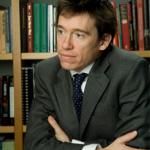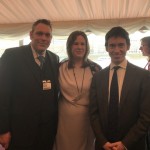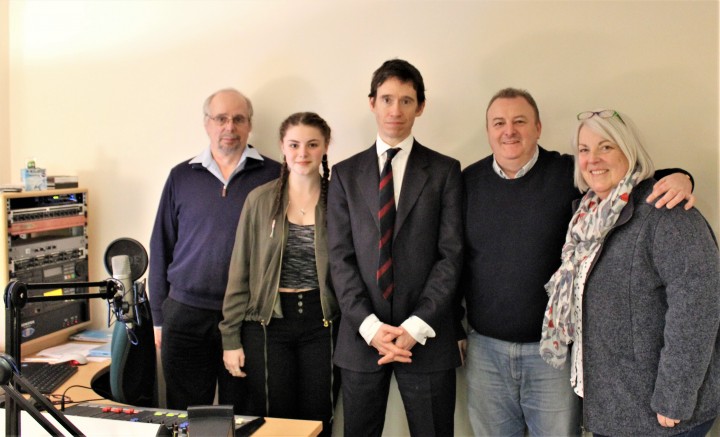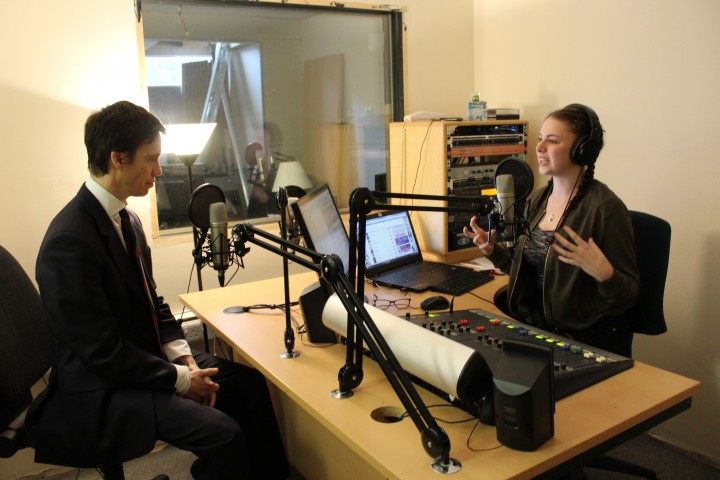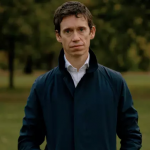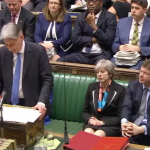Herald Column
Article first published in The Herald on 1 April 2017.
About every three weeks, I seem to be perched on the edge of a desk – sometimes a comically small desk – talking politics in a classroom. Some Cumbrian schools have only twelve students, some have one and a half thousand. But the conversations are strikingly similar. Eight year olds often begin with rural broadband; sixteen year-olds with reducing the voting age to 16. And then – quite suddenly – the conversation becomes global. In a moment, I can be asked by the same children to sign a pledge to eliminate child poverty in Africa, or guarantee hundred per cent access for girls’ education in Asia. So, the conversation lurches from the very local to the excessively international without touching anything in between. There is no mention of the deficit, or the budget. No mention of election campaigns, political parties, the civil service, local councils, the law, or – still less – politicians. No mention, in short, of how Britain is actually governed.
And I realise – thinking about it now – that it isn’t only school-children who have very little understanding of our political system; I myself knew almost nothing until I became a politician. And when I actually had to sit through the speeches, see how the voting happened, how promotions worked, or ‘whipping’ operated – I was often horrified. Week after week I was forced to see how intelligent, hard-working people with clear ideas were defeated: sometimes by chance, or an accident of timing, by an unfair headline, or a change in leadership, by the unintended consequences of regulations, the bizarre logic of the law, and the inertia of bureaucracies. Like most children in school today, the politicians I was taught to admire were heroic, imprisoned freedom fighters like Gandhi or Nelson Mandela; there weren’t many of those in Westminster. And it took me years to see how parliament could be made to do something useful for the nation.
So how should you teach politics or citizenship in school? One approach is to teach children about their basic rights, or to teach them inspiring stories of political change. Another is to encourage them to campaign, to sign petitions, to go on demonstrations, or mount social media storms – focusing on getting their voices heard. But if the aim is to create citizens who can really change the world, then I feel we should begin by helping them understand it.
So, my starting point for a ‘citizenship’ curriculum would be a few episodes of “Yes Minister”. My first exercise would be for them to name their best political idea, and then write a tabloid story ripping it to shreds. Then I would invite them to go through the week of a typical politician beginning with voting at 10 pm on a Monday night in Westminster, through committee hearings, debates or ministerial business cases, to a formal dinner, 300 miles away in the constituency on a Friday night, inserting a little time for the family. I would make them watch a Question Time politician giving answers on cancer survival rates, local government financing, and defence policy in NATO, and ask them to guess how deep that knowledge really was. I would invite them to draft replies for just one day of my email inbox – (my predecessor Willie Whitelaw received perhaps a hundred letters from constituents in a year, I am not unusual as a modern MP in receiving and replying to perhaps 10,000 emails from constituents in a typical year). And then I would suggest watching Yes Minister again.
But that is the easy bit; two difficult tasks would remain. The first, is to explain how British politics can be somehow more than the sum of these dispiriting parts; and how there was no golden age of political dignity and respect. Eighteenth century visitors to Britain were appalled by the rudeness, the cynicism and the irresponsibility of the British press; they were scandalised by the brash self-assertion of the party manifestos; and revolted by the boisterousness and lack of respect in the chamber. But some of these things may have been less harmful than they imagined, may in the long run keep have our system more alert and responsive than was possible amidst the grandeur of the American constitution, or the logic of the French.
The second task is to help the student see how – despite all the apparently unmovable forces – real political change remains still possible. I’m still not able to describe how the whole thing, which we call our ‘constitution’ manages to survive, let alone work. But if I was trying to write a ‘citizenship’ course for students I would start with that – with the infuriating, muddled eccentricity of parliamentary procedure and parties and media and civil servants and half-informed ministers, through which wars have been won, peace concluded, and treaties made and broken; through which a National Health Service was created, and slavery ended.




